MRules version 2.8.1 is released and fixes a security issue on Vaadin based extensions.
The release notes provides details on all modifications.
 Java Business Rule Engine (BRMS)
Java Business Rule Engine (BRMS)MRules version 2.8.1 is released and fixes a security issue on Vaadin based extensions.
The release notes provides details on all modifications.
MRules version 2.8.0 is released and mainly updates external libraries versions, for security concerns.
The release notes provides details on all modifications.
MRules version 2.7.1 is released and fixes a critical bug on the optimizer, potentially causing unexpected results while accessing data.
The release notes provides details on all modifications.
We are proud to announce that the version 2.7.0 of MRules is released.
In addition to several fixes and improvement, this version introduces MRules support of JDK up to version 15.
Also, Java 1.6 has been desupported.
Therefore, as of version 2.7.0, MRules supports all versions of Java from 1.7 to 15.
The release notes provides details on all modifications.
We are proud to announce that the version 2.6.0 of MRules is released.
In addition to several fixes and improvement, this version introduces a new major feature.
MRules now provides out of the box everything needed to easily monitor and collect statistics about rulesets life cycle (execution times, failures, etc …)
This page provides information on this new feature.
The release notes provides details on all modifications.
The web site is currently being updated with the documentation.
In this tutorial, we’ll see how to import a demo in your favourite IDE, launch it and see results of modifications applied on rules.
We’ll be using the health insurance demo, but the import steps are the same for the other ones.

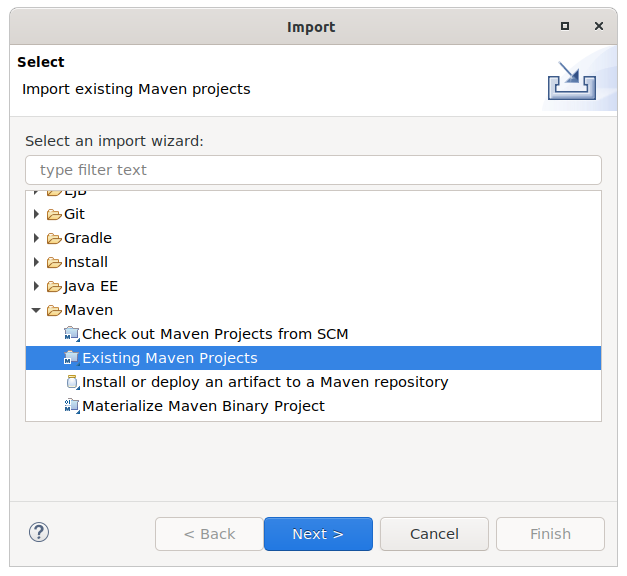
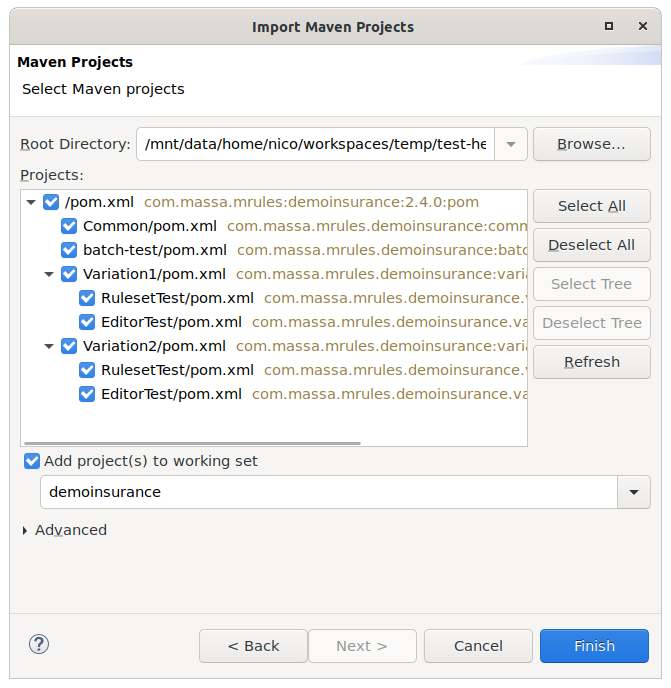
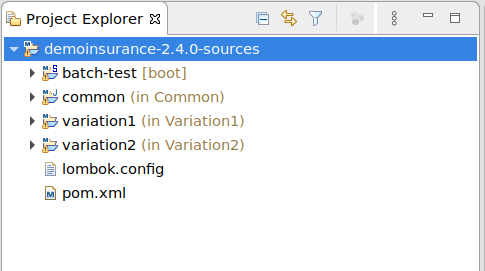
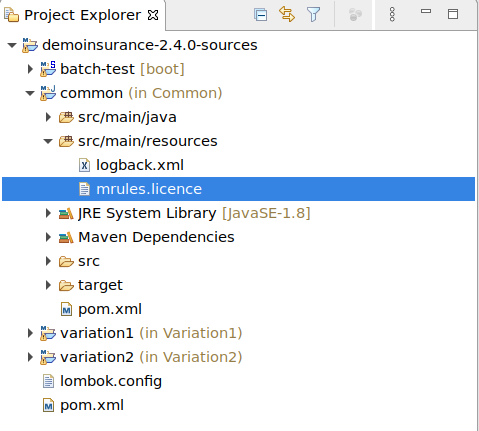
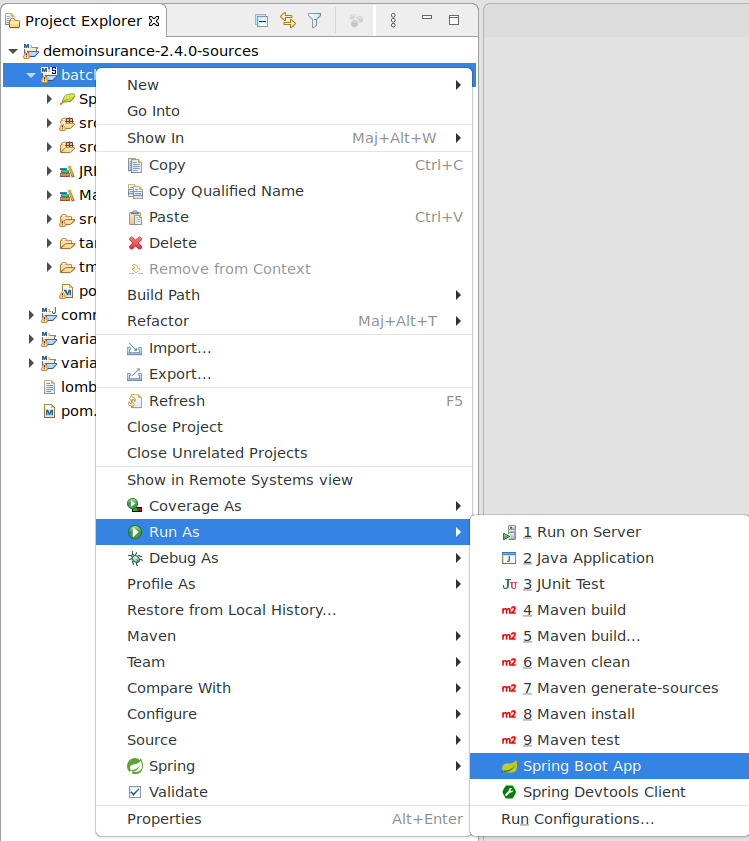

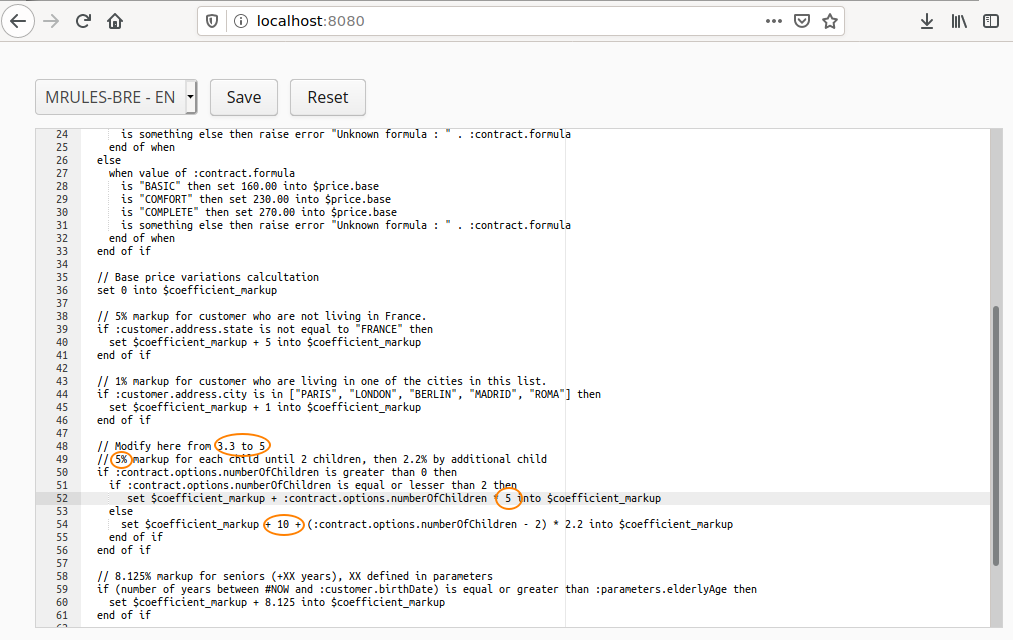

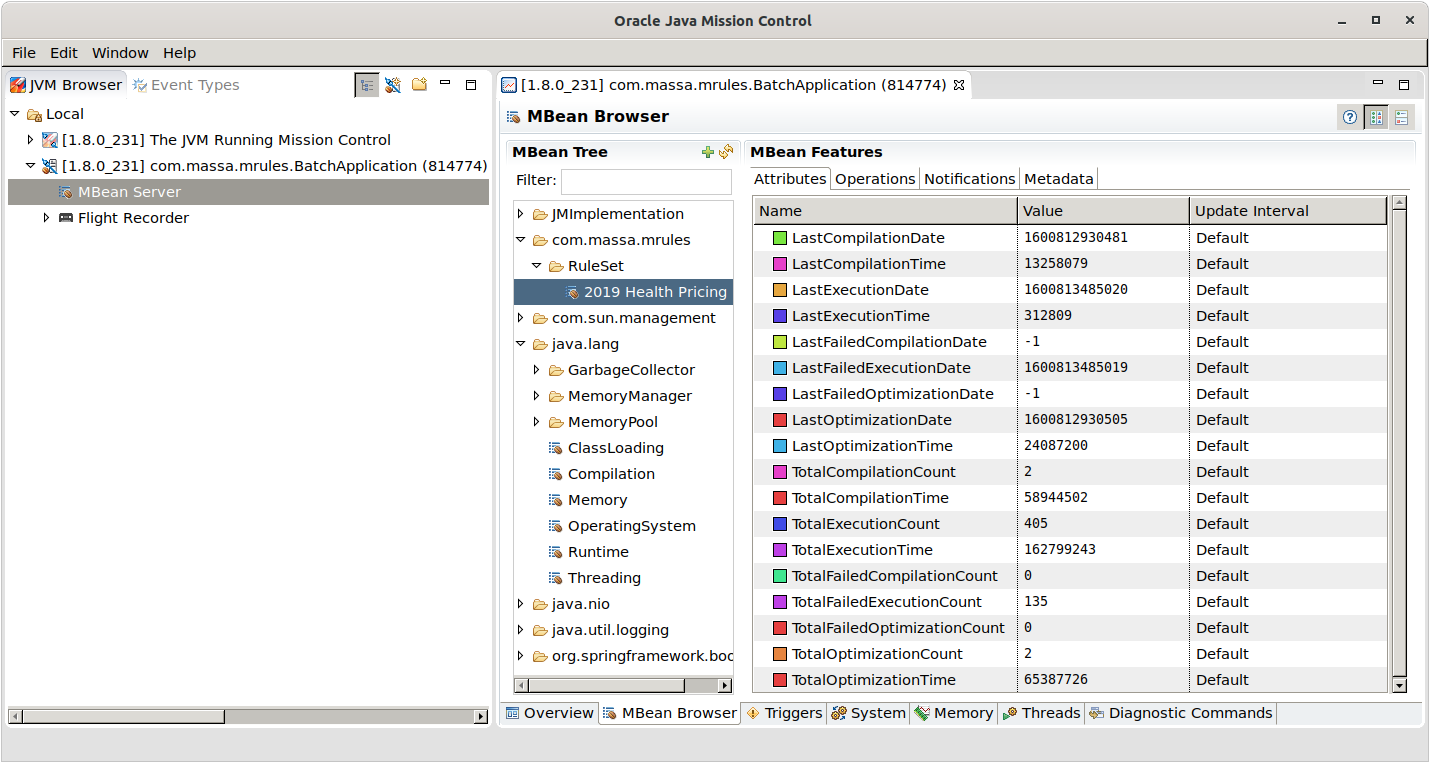
# HELP mrules_compilations_last_date RuleSet last compilation date
# TYPE mrules_compilations_last_date gauge
mrules_compilations_last_date{name="2019 Health Pricing",type="RuleSet",} 1.600812930481E12
# HELP mrules_optimizations_last_date RuleSet last optimization date
# TYPE mrules_optimizations_last_date gauge
mrules_optimizations_last_date{name="2019 Health Pricing",type="RuleSet",} 1.600812930505E12
# HELP mrules_compilations_failures RuleSet compilation failures
# TYPE mrules_compilations_failures gauge
mrules_compilations_failures{name="2019 Health Pricing",type="RuleSet",} 0.0
# HELP mrules_optimizations_last_time RuleSet last optimization time
# TYPE mrules_optimizations_last_time gauge
mrules_optimizations_last_time{name="2019 Health Pricing",type="RuleSet",} 2.40872E7
# HELP mrules_optimizations RuleSet optimization total
# TYPE mrules_optimizations gauge
mrules_optimizations{name="2019 Health Pricing",type="RuleSet",} 2.0
# HELP mrules_optimizations_time RuleSet optimization total time
# TYPE mrules_optimizations_time gauge
mrules_optimizations_time{name="2019 Health Pricing",type="RuleSet",} 6.5387726E7
# HELP mrules_optimizations_last_failure_date RuleSet last failed optimization date
# TYPE mrules_optimizations_last_failure_date gauge
mrules_optimizations_last_failure_date{name="2019 Health Pricing",type="RuleSet",} -1.0
# HELP mrules_compilations_time RuleSet compilation total time
# TYPE mrules_compilations_time gauge
mrules_compilations_time{name="2019 Health Pricing",type="RuleSet",} 5.8944502E7
# HELP mrules_executions_time RuleSet execution total time
# TYPE mrules_executions_time gauge
mrules_executions_time{name="2019 Health Pricing",type="RuleSet",} 1.75738057E8
# HELP mrules_optimizations_failures RuleSet optimization failures
# TYPE mrules_optimizations_failures gauge
mrules_optimizations_failures{name="2019 Health Pricing",type="RuleSet",} 0.0
# HELP mrules_compilations RuleSet compilation total
# TYPE mrules_compilations gauge
mrules_compilations{name="2019 Health Pricing",type="RuleSet",} 2.0
# HELP mrules_executions_failures RuleSet execution failures
# TYPE mrules_executions_failures gauge
mrules_executions_failures{name="2019 Health Pricing",type="RuleSet",} 147.0
# HELP mrules_executions_last_time RuleSet last execution time
# TYPE mrules_executions_last_time gauge
mrules_executions_last_time{name="2019 Health Pricing",type="RuleSet",} 215058.0
# HELP mrules_executions_last_date RuleSet last execution date
# TYPE mrules_executions_last_date gauge
mrules_executions_last_date{name="2019 Health Pricing",type="RuleSet",} 1.600813545031E12
# HELP mrules_compilations_last_time RuleSet last compilation time
# TYPE mrules_compilations_last_time gauge
mrules_compilations_last_time{name="2019 Health Pricing",type="RuleSet",} 1.3258079E7
# HELP mrules_executions RuleSet execution total
# TYPE mrules_executions gauge
mrules_executions{name="2019 Health Pricing",type="RuleSet",} 441.0
# HELP mrules_executions_last_failure_date RuleSet last failed execution date
# TYPE mrules_executions_last_failure_date gauge
mrules_executions_last_failure_date{name="2019 Health Pricing",type="RuleSet",} 1.60081354503E12
# HELP mrules_compilations_last_failure_date RuleSet last failed compilation date
# TYPE mrules_compilations_last_failure_date gauge
mrules_compilations_last_failure_date{name="2019 Health Pricing",type="RuleSet",} -1.0We chose here to demonstrate how easy it is to expose metrics on how MRules behaves in your app and the export them to Prometheus. But lots of other collectors are also supported!
Don’t hesitate to change the metrics configuration in the code of the demo and to directly visualize the effects of the modifications.
We are proud to announce that the version 2.5.0 of MRules is released.
This version is mainly a technical release, but however brings some new features:
The release notes provides details on all modifications.
The web site is currently being updated with the documentation of the new features.
We are proud to announce that the version 2.4.0 of MRules is released.
This version mainly adds:
The release notes provides details on all modifications.
The web site is currently being updated with the documentation of the new features.
We are proud to announce that the version 2.3.0 of MRules is released.
This version mainly:
The release notes provides details on all modifications.
We are proud to announce that the version 2.2.0 of MRules is released.
This version comes with some new features, among which:
Lots of improvements and optimizations have been made to already existing features. Also, the DSL editor and specifically the autocompletion feature has been improved to be more accurate and intuitive.
Please note the breaking changes in the list of modifications:
The release notes provides details on all modifications.